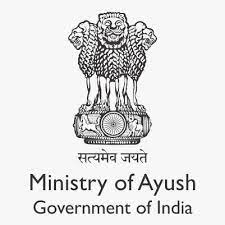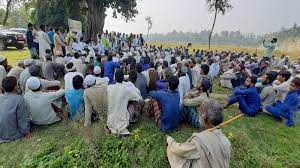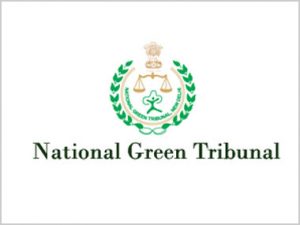Today Current Affairs: 27th May 2021 for UPSC IAS exams, State PSC exams, SSC CGL, State SSC, RRB, Railways, Banking Exam & IBPS, etc
Table of Contents
Ayush Clinical Repository (ACCR) portal:

Union Minister for Ayush Kiren Rijiju will launch the Ayush Clinical Case Repository (ACCR) portal and the third version of Ayush Sanjivani App on MAY 27, 2021.
Ayush Clinical Repository (ACCR) portal:
- The Ayush Clinical Repository (ACCR) portal (https://accr.ayush.gov.in/) will serve as a platform to support both Ayush practitioners and the general public.
- This portal aims to aggregate information about clinical outcomes achieved by Ayush practitioners on a large scale. It is expected to document the strengths of Ayush systems for the treatment of various disease conditions.
- One notable feature of the ACCR portal is the dedicated section for reporting and publishing details of Covid 19 cases treated through Ayush Systems.
Ayush Sanjivani App:
- The Ayush Sanjivani App (Third Version) is now published on Google Play Store and iOS.
- This version facilitates a significant study/ documentation regarding the efficacy of selected Ayush interventions, including Ayush 64 and Kabasura Kudineer medicines in the management of asymptomatic & mild to moderate Covid 19 patients.
National Mission On Use Of Biomass In Coal Based Thermal Power Plants:

The Ministry of Power has decided to set up a National Mission on the use of Biomass in coal-based thermal power plants.
- The proposed National Mission on biomass will also contribute to the National Clean Air Programme (NCAP).
- It would further support the energy transition in the country and our targets to move towards cleaner energy sources.
- Aim:
- To address the issue of air pollution due to farm stubble-burning and to reduce carbon footprints of thermal power generation.
- Objective:
- Increase the level of biomass co-firing from the present 5% to higher levels to have a larger share of carbon-neutral power generation from the thermal power plants.
- Biomass co-firing stands for adding biomass as a partial substitute fuel in high-efficiency coal boilers.
- Take up R&D (Research & Development) activity in boiler design to handle the higher amount of silica, alkalis in the biomass pellets.
- Facilitate overcoming the constraints in the supply chain of biomass pellets and agro- residue and its transport up to the power plants.
- Consider regulatory issues in biomass co-firing.
- The Mission would have a Steering Committee headed by the Secretary (Ministry of Power) comprising all stakeholders including representatives from the Ministry of Petroleum & Natural Gas, Ministry of New & Renewable Energy etc.
- National Thermal Power Corporation Limited will play a larger role in providing logistics and infrastructure support.
- The duration of the proposed National Mission would be a minimum of 5 years.
Dhaka Clears Currency Swap For Lanka:

Bangladesh has cleared a $200 million currency swap facility for Sri Lanka, becoming the first South Asian country to extend crucial financial assistance to the island nation this year.
- With Sri Lanka’s main foreign exchange earning sectors — tourism, export of garments, and tea — badly hit due to the pandemic, the country has been struggling to maintain its reserves in the face of a daunting debt repayment schedule.
- Currency Swap Arrangement is an arrangement between two friendly countries to involve in trading in their own local currencies.
- As per the arrangements, both countries pay for import and export trade at the predetermined rates of exchange, without bringing in a third-country currency like the US Dollar.
- In such arrangements no third country currency is involved, thereby eliminating the need to worry about exchange variations.
Quad As An Attempt For Containment: China China’s Consul General:

China’s Consul General in Mumbai has described Quad as “an attempt for containment”.
- Because, Quad advocates so-called democratic alliance, and targets certain specific countries in an attempt for containment.”
- The reference to Quad indicates Beijing’s deep annoyance with a grouping that intends to curtail its influence in the Indo-Pacific and areas that China considers its zone of influence.
Quad grouping:
- The quadrilateral security dialogue includes Japan, India, United States, and Australia.
- All four nations find a common ground of being democratic nations and common interests of unhindered maritime trade and security.
- It is often dubbed as an “Asian” or “mini” NATO and is viewed as a counterbalance to China’s military and economic clout in the Indo-Pacific region.
- The grouping traces its genesis to 2004 when the four countries came together to coordinate relief operations in the aftermath of the tsunami.
- It then met for the first time in 2007 on the sidelines of the Association of southeast Asian Nations (ASEAN) summit.
- The intention was to enhance maritime cooperation between the four nations.
The Reclining Buddha:

On Buddha Jayanti (May 26), India’s largest statue of the Reclining Buddha was to have been installed at the Buddha International Welfare Mission temple in Bodh Gaya. The ceremony has been put off due to Covid-19 restrictions.
- A reclining Buddha statue or image represents the Buddha during his last illness, about to enter Parinirvana.
- Parinirvana is the stage of great salvation after death that can only be attained by enlightened souls.
- The Buddha’s death came when he was 80 years old, in a state of meditation, in Kushinagar in eastern Uttar Pradesh, close to the state’s border with Bihar.
- The Reclining Buddha was first depicted in Gandhara art, which began in the period between 50 BC and 75 AD and peaked during the Kushana period from the first to the fifth centuries AD.
- Statues and images of the Reclining Buddha show him lying on his right side, his head resting on a cushion or on his right elbow.
- It is meant to show that all beings have the potential to be awakened and be released from the cycle of death and rebirth.
- Reclining postures are more prevalent in Thailand and other parts of southeast Asia.
- The largest Reclining Buddha in the world is the 600-foot Winsein Tawya Buddha built-in 1992 in Mawlamyine,
- The Bhamala Buddha Parinirvana in Pakistan’s Khyber Pakhtunkhwa province, which dates back to the 2nd century AD, is considered the oldest statue of its kind in the world.
Rights Of Van Gujjars:

The Uttarakhand High Court has reprimanded the State government for stopping some Van Gujjar families on the way to Govind Pashu Vihar National Park and said their right to life is being violated by the authorities.
- The Van Gujjars pursue seasonal migration from the Terai-Bhabar and Siwalik region of Uttarakhand to the higher bugyals in the Western Himalayas in summer and vice versa in winter.
- This phenomenon of transhumance pursued by the community is among the few climate-adaptive and resilience strategies that ensures their pastoral livelihood remains viable and sustainable.
- The Van Gujjars possess legitimate permits across their summer (Govind Pashu Vihar National Park) and winter homesteads.
- However, they are not permitted by authorities to enter the Park.
Rights of Pastoralists under Forests Rights Act 2006:
- It has ensured that even pastoralists possess rights to access grazing pastures in lieu of the Community Forest Resource right they are eligible for.
- Section 2 (a) prescribes for the rights of pastoral communities on customary common forest land within the traditional or customary boundaries of a village.
- It also prescribes the seasonal use of a landscape in the case of pastoral communities, including in unclassed forests, reserve forests, un-demarcated forests, deemed forests, protected forests, sanctuaries, and national parks.
High Court’s Order:
- Upholds the right of Van Gujjars to migrate to their summer homesteads in the bugyals (Himalayan alpine meadows) located within the Govind Pashu Vihar National Park.
- The court relied on Article 21 (Protection of Life and Personal Liberty) of the constitution.
About Van Gujjars:
- Van Gujjars are the forest-dwelling nomadic community inhabiting the foothills of the Himalayan States such as Uttarakhand, Himachal Pradesh and Jammu and Kashmir.
- Usually, they migrate to the bugyals (grasslands) located in the upper Himalayas with their buffaloes and return only at the end of monsoons to their makeshift huts, deras, in the foothills.
- They traditionally practice buffalo husbandry; a family owns up to 25 heads of buffaloes. They rely on buffaloes for milk, which gets them a good price in Uttarakhand and Uttar Pradesh markets.
New Rules For Increased FDI In Insurance Sector:

The Ministry of Finance amended Indian Insurance Companies (Foreign Investment) Rules, 2015, and clarified the final rules for increased FDI (Foreign Direct Investment) in the Insurance Sector.
- Parliament had passed the Insurance Amendment Bill 2021 to increase the FDI limit in the insurance sector to 74% from 49%.
- The Ministry of Finance has notified ‘Indian Insurance Companies (Foreign Investment) Amendment Rules, 2021’.
Highlights of New Rules:
- Management Persons to be Resident Indian Citizens:
- For an Indian insurance company having foreign investment – the majority of its directors, key management persons, and at least one among the chairperson of its Board, its managing director, and its chief executive officer – will be a resident Indian citizen.
- Total foreign investment here would mean the sum of both direct and indirect foreign investment.
- Direct investment by a foreigner will be called Foreign Direct Investment, while investment by an Indian company (which is owned or controlled by foreigners) into another Indian entity is considered as Indirect Foreign Investment.
Insurance Penetration in India:
- Insurance penetration in India is currently at 3.7% of the Gross Domestic Product (GDP) compared to the world average of 6.31%.
- Growth in the life insurance sector has slowed to 11-12% currently from 15-20% until fiscal 2020, as the pandemic pushed customers to save cash instead of spending on stocks or life insurance policies.
- As of 31st March 2021, there were only 24 life and 34 non-life direct insurers in India, whereas there were 243 life insurance companies (1956) and 107 non-life insurance companies (1973) at the time of nationalization.
The Pension Fund Regulatory and Development Authority:

The Pension Fund Regulatory and Development Authority (PFRDA) crossed the milestone of Rs 6 lakh crore (Rs 6 trillion) of Assets Under Management (AUM) under the National Pension System (NPS) and Atal Pension Yojana (APY), after 13 years.
- Pension Fund Regulatory and Development Authority (PFRDA) is the statutory authority established by an enactment of the Parliament, to regulate, promote and ensure orderly growth of the National Pension System (NPS) and pension schemes to which this Act applies.
- NPS was initially notified for central government employees recruits w.e.f. 1st January 2004 and subsequently adopted by almost all State Governments for its employees.
- NPS was extended to all Indian citizens (resident/non-resident/overseas) on a voluntary basis and to corporates for its employees.
Mekedatu project:

The National Green Tribunal (NGT) has appointed a joint committee to look into allegations of unauthorized construction activity taking place in Mekedatu, where the Karnataka government had proposed to construct a dam across the Cauvery River.
- Acting suo motu based on a media report, the NGT has directed the panel to submit a report on or before July 5.
- The Mekedatu multi-purpose project involves building a balancing reservoir across the Cauvery River near Kanakapura in Ramanagaram district.
- It envisages supplying drinking water to Bengaluru and Ramanagaram districts, besides the generation of power.
- The project was conceived in 2013 and in 2017, the Karnataka state cabinet decided to implement it.
- The project, however, ran into a controversy after Tamil Nadu opposed it on the grounds that the project violates the Cauvery Water Disputes Tribunal award.




